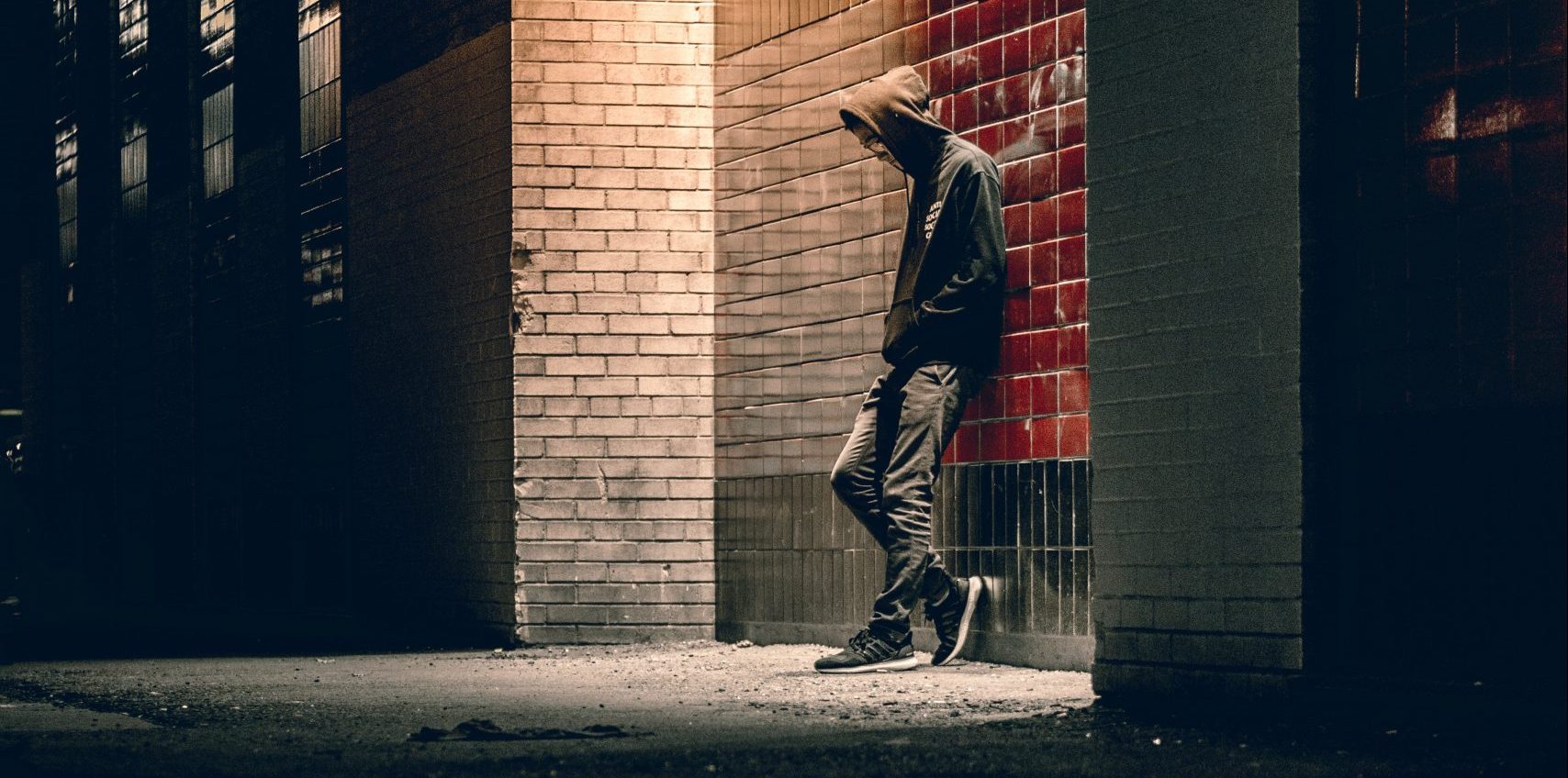 Elke Hausmann is a salaried GP in Derby
Elke Hausmann is a salaried GP in Derby
The book
The title ‘Poverty Safari’ had put me off reading this book when it first came out in 2017. It sounded crass to me. My assumption was of a middle class journalist parachuting in to a deprived area and reporting back to the middle class what he experienced through his own middle class lens. How wrong I was – this is actually the extraordinarily reflective work of a man who grew up with poverty and adverse childhood experiences.
He explains later in the book how he came to coin the phrase ‘poverty safari’ in ‘an attempt to distill everything I had learned in my experience as a working class person, attempting to escape poverty whilst traversing (…) wildly different cultural domains’ (p.188); exposing exactly the assumptions somebody like me who grew up in a more economically and emotionally secure environment might have. This was the first clue that this book is challenging: it challenges many beliefs of the reader, with the writer leading by example investigating his own beliefs.
The author
…this book is challenging: it challenges many beliefs of the reader, with the writer leading by example investigating his own beliefs.
The reason I did finally pick up this book is that I was introduced to the author through last year’s BBC Radio 4 Reith Lecture series inspired by Roosevelt’s Four Freedoms where Darren McGarvey gave the lecture entitled ‘Freedom from Want’.
Darren McGarvey or ‘Loki’ is a writer, performer and columnist with a deep personal interest in the root causes of anti-social behaviour and social deprivation. He grew up in Pollok, an area of Glasgow characterised during that time by poor housing conditions and high unemployment rates with lack of opportunities, high rates of poverty and ill health and low life expectancy.
His own early life was shaped by an alcoholic and at times violent mother who left the family home when he was only 10 and died young, a father who tried to instill values in him which he only recognised as assets much later in life, inherited left wing beliefs he used as justifications for his anger about his living conditions which he blamed on ‘the system’, leading to a lost decade in his 20s when he descended into a life of addiction and what we might call welfare dependency whilst touring mental health services for years.
He managed to stop drinking when somebody said something to him that hit a nerve at the right time which was a catalyst for change for him. From there his interest in words and his talent took him to become a rapper and hip hop recording artist and a social commentator with a unique insight into all aspects of poverty and what comes with it.
Poverty and adverse childhood experiences
The importance of adverse childhood experiences are well recognised at least theoretically by now as having an immense influence on later life, but what we practically do with that knowledge is still quite limited. Darren McGarvey is at pains to show how the societal problem of poverty has no easy fixes, and anybody who tries to give easy answers is wrong.
Coming from the left, his own experience has shown him that a critique of social structures is crucial, however he takes issue with the fact that ‘we have allowed right wing movements to monopolise the concept of personal agency and the notion of taking responsibility. Worse, we vilify anybody who implies that poor people may sometimes play a role in their own circumstances, whether they be desirable or adverse. We’ve forgotten that not every problem or issue can be ascribed to broader social problem or power dynamic. We deny the objective truth that many people will only recover from their mental health problems, physical illnesses and addictions when they, along with the correct support (reviewer’s emphasis), accept a certain level of culpability for the choices they make’ (p. 111/112).
The long term effects of adverse childhood experiences
How pervasive these childhood experiences may be and how difficult to escape they are, is described in detail in Chapter 9 which starts: ‘Today I stand defeated at a counter of McDonalds, where I appear to be ordering food against my will’ (p.114). His description of emotional overeating are stark, and his reflections about the causes are thoughtful.
Children become adults
The effects of adverse childhood experiences are seen later in life, and in Chapter 16 he analyses how the media presents the issue with respect to child abuse, presenting sanitised images that show a child frozen in time, to whom we want to reach out and save, but don’t make the connection that ‘the neglected and abused kids, the unruly young people, the homeless, the alkies, the junkies and the lousy, irresponsible, violent parents are often the same persons at different stages of their lives’ (p.95).
Stress and coping mechanisms
Darren McGarvey does not deny that child abuse can happen in any social class, but it is more likely, pervasive and damaging in the context of poverty.
He makes the same point about stress: ‘It seems bizarre that we would ever attempt to draw conclusions about the behaviour of people in deprived communities, let alone legislate for it, without allowing for the context of stress and how that is itself a causal factor in comfort eating, smoking, gambling, binge drinking, substance misuse and various cultures of aggression and violence. (…) for people who live their lives constrained by emotional stress, anxiety or dread, such activities, while destructive in the long terms, offer a brief emotional reprieve – and an illusion of control – which, when under the duress of psychological strain, creates urges, impulses and compulsions that become hard to resist. Everybody experiences stress, regardless of class, and I really can’t stress this point enough. I’m not trying to minimise or dismiss the stress people from higher class backgrounds experience, nor am I saying that middle class people don’t stress related problems or illnesses. But the degree that stress inhibits our progress, harms our health and social mobility and shapes our social attitudes and values, is disproportionally high among the working classes.’ (p. 61/62).
A tale of two girls
In Chapter 14 Darren McGarvey writes about two young children in a play group where he worked, who are both stressed but for very different reasons which exemplify their situation and predict the further course of their lives.
Both girls are new to the group. One (though under 10 years old) is wearing make up, is sitting apart from group and close to the writer once activities get going as she seems frightened by the random bouts of cheering of children having fun, she is also soon beginning to tell him intimate details of her life – ‘the urge is common among victims of abuse and neglect who, burdened by trauma, seek to purge themselves of painful memories and events by vomiting them up to anyone who will listen’ (p. 84).
The other girl is crying, saying ‘I miss my mummy’, having ended up in this playgroup in this deprived area while staying with a cousin when she really comes from a more affluent neighbourhood. ‘She is upset and frightened, but it’s less likely because of abuse at home (though I could be wrong) and more likely due to the fact she is accustomed to feeling secure. She is so used to being taken off to care by her mother that being separated from her for half an hour fills her with enough dread to elicit tears.
Meanwhile, the little girl in make-up, lost in her colouring book, is well adjusted to feeling of insecurity. She has already adapted to the reality that her life is frightening. Despite suffering abuse – verbal and psychological at the least – as well as emotional neglect, she has yet to shed a tear, despite being visible stressed. One girl has an expectation of danger and the other an expectation of security. Both expectations are correct, based on their respective experiences of life; however, both expectations now place them at odds with the situation they now find themselves in. One girl feels scared, despite being safe, the other stressed while the rest of the kids are having fun’ (p. 85/86).
Later in the chapter he describes how over the course of the next 20 years or so they are unlikely to cross paths again and if they did, ‘Having subconsciously made their assessments of one another, based on their own distinct experiences and the social and cultural attitudes and expectations these have created, it is likely they will misunderstand one another so fundamentally that they’ll walk away from the interaction abruptly, feeling deeply offended or insulted by what the other person appears to imply’ (p.87).
The ‘middle classness’ of an art project
This is further illustrated in Chapter 31, where he analyses his own reaction to an art project looking at the Glasgow Effect (relating to the fact that Glasgow’s mortality rate is the highest in the UK), informed by his own assumptions about the ‘middle classness’ of the artist, only belatedly seeing her ‘not as an enemy, but an ally in the war I’d been fighting all my life’ (p.195) – whilst retaining his right to challenge her on some of her assumptions.
Mental illness and addiction
This book has a lot more to say that is relevant to GPs, I am thinking particularly about the author’s experience of mental illness and addiction (Chapter 11 describes how in the throws of addiction, ‘I was experiencing a wide range of symptoms that resembled mental illnesses like severe depression, bipolar disorder and even schizophrenia, but a diagnosis always eluded me’ (p.71)). For anyone who feels that the concept of class is outdated and identity politics and intersectionality are more relevant today, I would recommend the excellent Chapter 26.
A hopeful note for GPs
As GPs, we are more likely to be middle class with less exposure to adverse childhood experiences and poverty than many of our patients. We may have experienced stress, we may understand addiction, we may have had some experience of abuse. This book helps to put our own experience and the experiences of our patients into a wider context, which will help us negotiate our interactions with our patients. There is always scope for misunderstanding, but there is also always room for improvement. We might even at some point in a consultation say something that becomes the catalyst for somebody to change their life.
Featured book: Poverty Safari by Darren McGarvey, Picador 2018, paperpack, £10.99
Featured photo by Warren Wong on Unsplash









Your input about this book is very alluring I think I will give it a read!